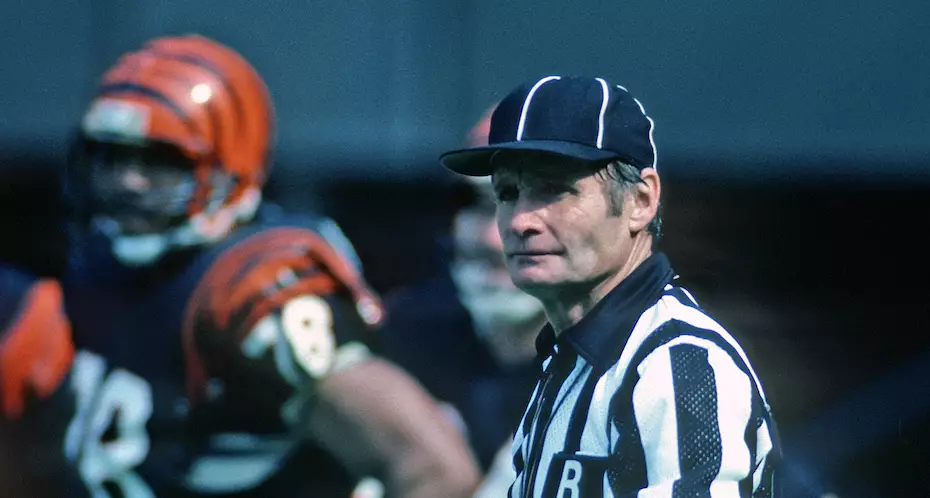The National Football League (NFL) community mourns the passing of Jim Tunney, a pivotal figure in the world of football officiating, who died at the age of 95 in his Pebble Beach home. Tunney’s illustrious career spanned more than three decades, during which he officiated some of the most iconic moments in football history. His contributions to the sport extended beyond mere officiating; he helped shape the very perception of referees in the age of televised sports.
Tunney’s legacy is closely tied to several games that have become etched in NFL lore, earning singular names that reflect their significance. He was the referee for “The Ice Bowl,” the legendary 1967 NFL Championship that saw temperatures plummet to an astonishing -15°F, with frigid wind chills making conditions almost unbearable for the players. Likewise, “The Catch” is forever recalled as a defining moment in football, where San Francisco 49ers’ Dwight Clark made a spectacular last-minute catch against the Dallas Cowboys, a game so thrilling it is burned into the memory of fans across generations. Additionally, the infamous “Fog Bowl,” a playoff game obscured by heavy fog in 1988 between Philadelphia and Chicago, serves as a reminder of the unpredictable nature of NFL games – a challenge Tunney navigated with skill and poise.
As the NFL blossomed into a television juggernaut, Tunney evolved with the times. He became the first referee who truly embraced the medium, making officiating more relatable and understandable for viewers at home. His knack for presenting the rules of the game in clear terms allowed fans to appreciate the complexities of officiating, setting a standard for those who would follow in his footsteps. Former referee Gene Steratore remarked on Tunney’s influence, recognizing him as a crucial bridge between the action on the field and the audience watching from their living rooms.
A Dual Life: Educator and Referee
Beyond the football field, Tunney was also a respected educator. He served as the principal of Fairfax High School in Los Angeles, where he balanced the demands of academia with the rigors of NFL officiating. For Tunney, weekends often meant a whirlwind of travel, hopping onto flights immediately after school to officiate games across the country. This duality not only showcased his dedication but also enriched his approach to officiating, bringing discipline and leadership from the educational sphere into the NFL.
In recent conversations, Tunney expressed concern about the evolution of officiating in the league. He believed that a lack of experienced trainers hindered the development of younger referees, emphasizing the need for mentorship and skill development in a rapidly changing environment. His insight into the need for strong, experienced leaders in officiating circles reflects a commitment to the integrity and fair play that he championed throughout his career.
Jim Tunney’s passing marks the end of an era. His contributions will resonate for years to come, and his commitment to elevating the game of football through skilled officiating is a legacy that will never fade.

